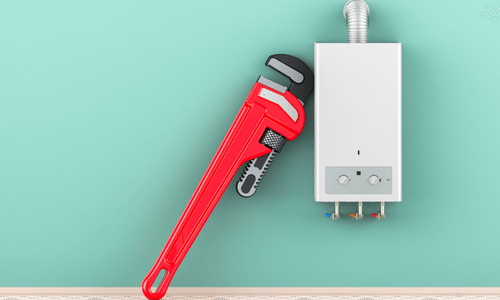
How To Maintain a Water Heater
Welcome to Local Plumber’s comprehensive guide on how to maintain your water heater effectively. Proper maintenance is the key to ensuring that your water heater operates efficiently, providing you with a reliable supply of hot water while also extending its lifespan. Whether you have a conventional tank water heater, a tankless system, or a heat pump/solar unit, we’ve got you covered with expert tips and insights to keep your appliance in top condition.Understanding the Importance of Water Heater Maintenance
Before delving into the specifics of water heater maintenance, it’s essential to grasp why it’s so crucial. Your water heater is a workhorse, tirelessly heating water for various household tasks, from showers to dishwashing. Over time, sediment accumulation, corrosion, and other issues can hinder its performance and efficiency. Regular maintenance helps catch these problems early, preventing costly repairs and ensuring that your water heater functions optimally for years to come.Types of Water Heaters: Tailoring Maintenance to Your System
Water heaters come in various types, each with its unique features and maintenance requirements. Understanding your water heater’s type is essential for tailoring your maintenance approach effectively. Let’s explore the different types:- Conventional Tank Water Heater: This type features a large storage tank that heats and stores water until needed. Regular flushing of the tank helps remove sediment buildup, maintaining efficiency.
- Tankless Water Heater: These units heat water on-demand, eliminating the need for a storage tank. Flushing the system annually is crucial to prevent mineral buildup in the heat exchanger.
- Heat Pump Water Heater: Heat pump units transfer heat from one place to another, offering high efficiency. Regular cleaning of outdoor components and monitoring performance ensures optimal operation.
- Solar Water Heater: Solar units utilize solar panels to heat water, making them eco-friendly. Keeping the panels clean and unobstructed maximizes sunlight absorption and heating efficiency.
Maintenance Tips for Conventional Tank Water Heaters
If you have a conventional tank water heater, here’s how to maintain it effectively:- Regular Inspection: Start by visually inspecting the tank, pipes, and fittings for any signs of leaks or corrosion. Even small leaks can escalate into major issues if left unaddressed.
- Annual Tank Flushing: Sediment buildup is a common issue in tank water heaters, which can reduce efficiency. Annually flushing the tank helps remove sediment, ensuring optimal performance.
- Testing the Pressure Relief Valve: The pressure relief valve is a crucial safety component that prevents excessive pressure buildup. Test it annually to ensure it operates correctly and releases pressure when needed.
- Insulating Hot Water Pipes: Insulating hot water pipes minimizes heat loss and improves energy efficiency. Install foam pipe insulation sleeves, especially in unheated areas like basements.
- Checking the Anode Rod: The anode rod protects the tank from corrosion by attracting corrosive elements. Inspect and replace the anode rod if it shows signs of corrosion.
Maintenance Tips for Tankless Water Heaters
Tankless water heaters require less maintenance but benefit from periodic upkeep: Tampa Tankless Water Heater Service- Annual System Flushing: Mineral buildup can occur in the heat exchanger, affecting performance. Flushing the system annually with a descaling solution helps remove mineral deposits.
- Cleaning the Air Intake Filter: Dust and debris can accumulate in the air intake filter, obstructing airflow. Clean or replace the filter every six months to ensure proper ventilation and combustion.
- Checking for Leaks: Inspect all connections and fittings for signs of leaks or corrosion. Tighten loose connections and replace damaged components promptly.
- Testing the Pressure Relief Valve: Just like conventional tank water heaters, test the pressure relief valve annually to ensure it functions correctly.
Maintenance Tips for Heat Pump and Solar Water Heaters
Heat pump and solar water heaters Florida have specific maintenance requirements to optimize performance:- Cleaning Solar Panels: Solar panels should be kept clean to maximize sunlight absorption. Regularly clean the panels with water and a soft brush to remove dirt and debris.
- Checking for Obstructions: Ensure that no objects or vegetation block sunlight from reaching the solar panels. Trim trees and shrubs as needed to maintain clear access to sunlight.
- Inspecting Heat Pump Components: Check the outdoor unit for debris or obstructions that could impede airflow. Clear any debris to ensure efficient operation.
- Monitoring Performance: Regularly monitor the performance of heat pump and solar water heaters. Any changes or issues should be addressed promptly by a professional technician.
Additional Tips for Water Heater Maintenance
Here are some additional tips to enhance water heater maintenance:- Setting the Temperature: Keep the water heater temperature at 120°F to prevent scalding and reduce energy consumption. Lower temperatures also help minimize mineral buildup.
- Installing a Water Softener: Hard water can lead to mineral buildup and reduce efficiency. Installing a water softener helps remove minerals, prolonging the lifespan of your water heater.
- Scheduling Professional Maintenance: Consider hiring a professional plumber for annual maintenance, especially if you’re unsure about DIY tasks. A plumber can identify potential issues and perform necessary repairs.
- Knowing When to Replace: Keep track of your water heater’s age and performance. If it’s nearing the end of its lifespan or experiencing frequent issues, consider replacing it to avoid sudden breakdowns.
Contact us today to learn more about maintaining your water heater and how it can benefit your home and family. Email us at services@local-plumber.com or call us at 813-776-7667 (POOP).





Leave a comment